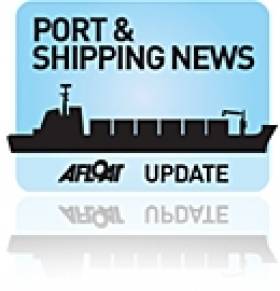Displaying items by tag: Local Authorities
Local Authority Harbours To Benefit From €4.5m Capital Programme
#IrishHarbours - Marine Minister Simon Coveney has announced details of a €4.5 million package to assist in the development and repair of 90 Local Authority-owned harbours and slipways.
The package provides funding for the repair of piers damaged by recent storms, in addition to supporting the ongoing development and enhancement of harbour facilities including some marine leisure developments.
“This is a significant investment in the repair and development of fishery and aquaculture linked marine infrastructures owned by the Local Authorities,” said the minister upon the announcement last Friday (19 February).
The Local Authority programme forms part of the Department of Agriculture, Food and the Marines’ 2016 Fishery Harbour and Coastal Infrastructure Development Programme, whereby the department co-funds up to 75% the total cost of approved projects with the Local Authority providing the balance.
Last month, Ireland's fishery harbours were announced as beneficiaries of €18 million worth of capital investment under the programme, as previously reported on Afloat.ie.
“The 90 Local Authority owned harbours in receipt of funding this year play an important social and economic role in their respective localities by contributing to the ongoing development of fishing-related activities, increasing participation in marine leisure, and augmenting measures to attract greater numbers of tourists which ultimately create the environment for job creation,” said Minister Coveney. “This is a major contribution to the social and economic fabric of these coastal communities and underlines this Government's commitment to rural development.
"The diverse range of projects approved for funding under the programme are geographically spread across 11 Local Authorities which will not only create much needed local employment over the timespan of the projects, but equally will further enhance the amenities provided to the wider marine community in these coastal areas.”
See the full table of Local Authority harbour works and grants for 2016 attached below.
Varadkar Warns of No Bail-Out to State-Owned Ports
In the report it was noted that there are too many ports and that the sector would benefit from a rationalisation of ownership and management structures. The decision which will be made over the next few months not only concerns the fate of the capital port but also the following state-owned ports: Dun Laoghaire, Waterford, Drogheda, Dundalk, Cork, Shannon Foynes, Wicklow, New Ross and Galway.
Mr Varadkar also warned that state money wouldn't be made available to bolster ports' balance sheets. "Where port companies are not successful, there will no bailouts and there will be no state aid. "It just isn't possible for the Government in the situation it's in to offer that," he said.
"Where smaller ports find themselves unable to continue operations, amalgamations or transfers to local authorities will be the preferred option."
On the issue of selling Dublin Port the company's chief executive Mr. Eamon O'Reilly who has cited previously that the port should not be sold as a private operator would not have the same incentive to invest as they would be focusing on generating returns.
As for the masterplan, he emphasised that the port would need to double its capacity so to handle the expected trade levels by 2040. He conceded the masterplan will cause some controversy but said the port has "great potential" to facilitate economic growth and make Dublin a better city to live in.





























































